|
الإعلامي ميلاد موسى
اتهامات تطال الكنيسة، سهام تنخر عظمها وقلبها .. تجريح، تلقيح ،تصديح، تلميح لجهل كبير قابع بين جدرانها . موضة العصر الآن، وتفرد وثقافة في المجتمع من هاجم وتهكم .. ففي جلسة شلوة أو بين الأصدقاء، العارف والذكي ومن يريد جذب الانتباه وخطف قلوب العذارى والمعجبين والمعجبات ، لابد أن يهاجم الكنيسة ومعتقداتها، والمتفلسف والعالم يضحك سرا على تعاليمها .. والشاطر والفهلوي واللغوي والضاحك كلهم اتفقوا على أن المؤمن بتعالميها لابد حجري لابد (old fashioned أولد فاشن ) لا نعمم ولكن من يفعل ما تقدم هو أبعد ما يكون عن المقاربة السليمة لعلم كنيسة عاشت 2000 سنة رأيت من خلال الكثير من النقاشات والجلسات والطروحات بأن الكنيسة ورجالاتها ومعلميها وروادها يعطون في الغالب المبرر لهؤلاء لفعل ما تقدم ، فإما الأجوبة تكون ناقصة على تساؤلات العالم وإما السائل يفترض مسبقا الجواب الغير الدقيق لتعاليم بيت الله إحدى أهم الأمثلة المطروحة في كتابنا المقدس هو نص الخلق في التكوين، دائما ما نرى الهجوم الساحق الماحق من الأطراف العلمية وغير العليمة على هذا النص وللأسف حتى رواد الكنيسة يتململون من هذا النص ، وينسى كل هؤلاء بأن الكتاب المقدس غير مطلوب منه أن يكون كتاب علم أو فيزياء أو كيمياء ، ولا يجيب أبدا عن كيفية بداية العالم أو تكوين الأرض ( كل هذا يطلب من العلماء ) أما نص الكتاب المقدس يبين لنا وللدارسين الحقيقين في كنيسة الله بأنه نص يعبر عن حب الله وكيف يعطي الله الكرامة للإنسان وكيف في النهاية يخلص الانسان المؤمن . الأمثلة كثيرة في كتابنا المقدس ولسنا هنا بصدد تفنيدها كلها . ولكن نقول : تحوّلَ التعليم الكنسي إلى تعليم هجومي مغلق لا يقبل النقد، ولا يقبل النقاش؛ على الأقل هذا ما نلمسه في بعض التعاليم والمناهج الكنيسة التي للأسف تقدم للأطفال. فتغرس فيهم الأمان بالمعلومة وتبعدهم عن البحث الدقيق. لينشأ جيل من فكر واحد، هجومي، لا يقبل أي رأي مختلف، أو يدعي القبول لفترة ثمّ، وما أدراك ما ثم؟ في ظل ما نعيش من انفتاح وتطور وتكنولوجيا ووسائل تواصل اجتماعيّ، يجب على كنائسنا وعلينا أن نطور أساليب التعايش مع الزمن وتطوير المجابهة لأطفالنا ( شباب الغد ) لكي لا نكرر خطأ الجمود الفكري. وعلى من يهاجم الكنيسة وتعالميها ويعمم ويظلم ، أن يتحرى الدقة والموضوعية ويبحث أعمق وأعمق وأختم مع القديس بطرس الرسالة الأولى – 3 – 15 " كونوا في كل حين مستعدين للرد على كل من يطلب منكم دليلا على الرجاء الذي فيكم" ملاحظة: دائما عيني هي عين الإعلامي والصحفي والناقد، لا أدعي الصلاح والكمال، أنا مجرد باحث، أكتب كما أرى.
0 Comments
Dr Harry Hagopian
It’s the same world as the one into which Jesus came - in so many ways a place that can drive us to despair or rage, and yet now and forever a world in which God is real, so that neither rage nor despair can be the only or the ultimate option for us - Dr Rowan Williams, friend & former Archbishop of Canterbury, Jordan, 2010 Some two weeks ago, when President Jo Biden embarked upon his tour of the MENA & Gulf regions, visiting Jerusalem, Bethlehem and Jeddah, I decided to reprise my own decades-long Middle Eastern odyssey by juxtaposing these inspiring words of faith from a theist of deep conviction and outreach with the belief system of Jean-Paul Sartre, perhaps the ultimate atheist and celebrity philosopher. In one sense, both men hold out for me a same note of encouragement toward peace-seeking and non-violence throughout our global village let alone toward a Middle East and North Africa region that is riven with violence, hatred, injustice, discrimination, corruption, nepotism and wars. After all, Sartre was a man who provided the French people with a compass for some direction and hope during WWII. Not unlike Archbishop Rowan in the midst of so much present-day uncertainty, diffidence and fear.
It is not easy, but can we overstep our past, refresh our today and avoid being governed by rage or despair? Or are we handicapped by our blinders and traumatised by injustices to try even? Is that not also a definition of a quicksand? After all, our future might depend on our faithful answer. So let me leave you - dear Telos reader - with an admission by the French novelist Anaïs Nin who wrote tellingly, “We do not see things as they are, but as we are.” © harry_bvH July 2022 Dr Harry Hagopian is an International lawyer who is also involved in a range of ecumenical & political consultancies. He is Knight of the Orders of St Gregory & St Lazarus, Fellow at Sorbonne University and Associate at the Ekklesia think-tank. For the past decade, he was Consultant to the Catholic Bishops’ Conference of England & Wales as well as to the Armenian Orthodox Church in the UK & Ireland. Earlier, he worked with the Middle East Council of Churches in Limassol, Beirut & Jerusalem. We had our first Telos Magazine annual meeting on Friday, January 15, 2021, gathering distinguished Telos authors and my fellow editorial board members. We shared our thoughts and ideas on current challenges and opportunities in Southwestern Asia and North Africa, and we practically all agreed on the fact that the region needs more than ever a multiform renaissance and that we have an obligation as scholars, intellectuals, authors, artists, activists, academics etc. to create and disseminate platforms of dialogue and actively engage in building inclusive societies.
Dr. Pamela Chrabieh How and why did we let ourselves be continuously buried under rubble?
Without implicating ourselves in entrenching the Orientalist caricatures of Southwestern Asian societies as incapable of self-government, there are questions to be asked about quietist and conformist tendencies, about the ostrich-like behavior and the zombie attitude. These questions do not lend themselves to easy answers. But engaging with them may facilitate critical assessment of the prospects for sustainable change. According to Patricio Aylwin Azocar: “Ordinary men and women may often feel unmotivated to exert their citizenship, either because they cannot tell the difference between the different alternatives, or because they have lost faith in the political classes, or because they feel that the really important issues are not in their power to decide”. As for the well-known poet Adonis, he reproaches the deification of the political party, the ideology and the community – Adonis opposes the sacralisation that colours and creeps into politics, turning parliamentarians, ministers and other public servants into demi-gods, their ideologies into gospels and political parties into quasi-sects. Indeed, over the past decades, the legacy of multiple wars in Lebanon, including hypermnesia, and paradoxically the tabula rasa mentality and strategy, have produced in the minds of a good many Lebanese the illusion that somehow “somebody” – the warlord, the zaim, the political party, the sectarian community/belonging – but not the State (or the embodiment of the common management of our diversity), can provide for ALL needs, so why make much effort to fulfill what used to be considered in practice (or are considered in the Constitution) the responsibilities of any citizen? As Larbi Sadiki describes Adonis in The Search for Arab Democracy, he is in all of this “an iconoclast”. “His predilection is for fluidity, plurality and provisionalism”. The icons of Lebanese politics have all cultivated and entrenched political iconolatry, and that iconolatry has been internalized by many Lebanese, thus has weakened the case for citizenship. Adonis’s iconoclasm (desacralisation) seems therefore justified, but in my opinion, when it comes to the Lebanese case, iconoclasm is not a generalized rebellion which will not take place given local divisions – and let us not forget the chaotic outcome of the so-called ‘Arab Spring’ in most countries where it occurred -, but a change-making process located in multiple local and diasporic social-political struggles already taking place. Agents of dialogue, non-governmental organizations, academics and activists have been trying their best, especially since the 1990s (and before), to raise awareness about the necessity of reforming the social-political system and of finding solutions to numerous crises such as the economic, environmental, cultural,…; crises of paradigms, identities, difference, indifference, intolerance, belligerence, ignorance, oppression, fanaticism, and of missionary zeal. However, if we want to shift from subjection, autocracy, blind faith, absolutism, fixity, non-participatory polity and “denizenship” to citizenship and good government, we will have to crawl out from under rubble, we will have to desacralise, we will have to become iconoclasts, and by that I mean: we will have to start make use of the energy and creativity of all these agents and encourage new initiatives, to serve our society (and continue on serving) even from afar (Lebanese living in diaspora) while continuing our primary missions, to pull up the stories of people who have been silenced, to harness solidarity into forms of actions that would contribute to the change-making process in an efficient manner, and to redirect the substantial energy of our frustration – when our streets and lives are vanishing under piles of glass, debris and garbage – and turn it into positive, effective, unstoppable determination. “If beyond hopelessness there is hope, I am hopeful” (Elias Khoury). And I am calling on my fellow academics and artists to further publicize/disseminate their knowledge as a catalyst for social-political change, to share and continue to share the myriad ways they use their expertise to expand public discourse and promote social justice, human rights, peacebuilding and alternative diversity management approaches. Intellectual activism or public sociology – or social justice education/ peace education – is an important form of activism that should accompany street protests, boycott and demonstrations. It is about the democratization of knowledge, about facilitating other forms of activism by giving people data, symbols and paradigms they can reference to back up their positions on social and political issues (as Popkewitz and others have noted, “Knowledge provides the principles through which options are made available, problems defined, and solutions considered as acceptable and effective”), by fostering dialogue and constructive criticism. It is about stepping out of the office and putting the accumulated research to use. It is about ‘being academic and artist’ as a social role, not just a job, especially when the silence of many maintains injustice, which it frequently does. True that academia and the arts do more than influence society, they are also shaped by it, they reflect the antagonisms and reproduce them, they are contested sites where various agendas and desires are promoted and through which power circulates to produce and legitimate certain kinds of knowledge, experience and ways of knowing, but academia — and some aspects of artistic production — in Lebanon is also inherently an elitist hierarchical structure and most academics/artists are worried about keeping their jobs, getting tenure and selling their artworks. Yet despite these limitations and that of self-enclosure of the Ivory Tower, there are already engaged iconoclast Lebanese academics and artists, and they are making a difference, but more need to engage beyond their classrooms, books, academic journals, and ‘ateliers’, to be in the act of researching people, themselves, the dynamics of oppression and the politics of social interactions and injustices, to become aware of the people’s often unknowingly complicit in the process of oppression, to create knowledge in and through meaningful participation and action with others, to bring people together and contribute to finding reasons of solidarity, to transform boundaries into spaces where lives and pedagogies are constructed together in ways that work for social justice and lead to powerful possibilities, and where dialogic and open-ended praxis based on more collaborative and caring relationships is promoted. Dr. Pamela Chrabieh -- also available on: pamelachrabiehblog.com Interreligious dialogue is all-too-often dominated by religiously authorized patriarchal spokesmen in Southwest Asia. Furthermore, feminists and liberals thinking and doing interreligious dialogue in the academic sphere are marginalized, especially those who forge an arena of religious/interreligious practice or construct a scholarly discourse on religions and interreligious dialogue. This reality is connected to the male and patriarchal domination of religious leadership, despite the emergence/re-emergence of women and feminist preachers, teachers and interpreters of religious texts in the 20th and 21st centuries.
Our paper first introduces two definitions of gender and authority; it then presents a few of the many aspects of our journey with thinking/doing interreligious dialogue, and addresses issues of gender and religious authority in Islam and Christianity; it also calls for a shift from complementarianism to egalitarianism, and presents the results of a survey with university students in Lebanon and the United Arab Emirates that helped us assess the possibility of implementing this shift; and in conclusion, it identifies few ideas as food for thought to face some of the challenges to rethinking/doing interreligious dialogue in particular, and the gender-religious authority relation more broadly, such as:
Read the full paper by Dr. Pamela Chrabieh and Dr. Nadia Wardeh in "Middle Eastern Women: the Intersection of Law, Culture and Religion", edited by Rev. Dr. Mitri Raheb, 2020. We are pleased to announce the publication of an edited book by Rev. Dr. Mitri Raheb - member of Telos' Editorial Board - on Women's rights and situations in the Middle East, with amazing contributions by several authors, including other members of the Editorial Board: Dr. Pamela Chrabieh and Dr. Anne Emile Zaki.
This book investigates the role that intersectionality of law, culture and religion plays in hindering movement towards equal rights for women. The majority of the papers highlights the challenges faced by women in traditional patriarchal societies. These challenges span from economic limitations to legal systems, and from lack of representation in the media to religiously inspired inequality. The papers included in this book are eye-opening in reporting the situation of women in diverse Middle Eastern countries and what they have in common, but also the differences between contexts, countries and denominations. Together, they construct an interdisciplinary vision of women’s lives in the Middle East. The papers show that the context is by no means static but is fluid and dynamic. There are setbacks but also breakthroughs. While one can see a polarization between conservative powers that seek to maintain the status quo on the one hand and progressive forces demanding change on the other, the direction for the future is clearly in favor of the latter. The hope is that this volume will contribute to this process. Order the book on AMAZON. We are pleased to announce the publication of a co-edited book by Rev. Dr. Mitri Raheb -- Telos Magazine editorial board member -- with Dr. Saeb Erakat: “The Double Lockdown: Palestine under Occupation and COVID-19”. The book is available for free -- click here.
The Covid-19 pandemic is changing both the global and the local scene in Palestine. As the world seeks an effective global response to the COVID-19 pandemic, Palestinians hope for an effective international coalition to bring an end to occupation. The first section of the booklet focuses on the political aspects with an opening paper by the Palestinian Chief Negotiator, Dr. Saeb Erakat, on the impact of COVID-19 on international relations and its potential impact on the Israeli-Palestinian conflict. The paper is followed by two case studies: Dr. Bernard Sabella, member of the Palestinian Legislative Council, looks at Jerusalem, a city that Israel declared united under its sovereignty. However, during the pandemic, the city is revealed as divided into two different sets of medical and social infrastructure and services. The second case is presented by Xavier Abu Eid who examines the Israeli annexation plan promoted by President Trump that strangles the city of Bethlehem and confiscates two strategic areas west of the city: the Cremisan Valley and Makhrour. These papers are followed by a paper by Dr. Dalal Iriqat who examines Israeli politics during COVID-19. The arrival of the virus coincided with a third Israeli election and the forming of a new ‘unity government’ that may have a significant impact on Palestinians. The fifth paper by Dr. Faisal Awartani looks at the statistics related to COVID-19 and compares Palestine’s data with that of the rest of the world, concluding with relevant recommendations for international agencies and governments. Dr. Maher Deeb, the Medical Director of Saint Joseph Hospital in Jerusalem, gives then a firsthand account of his experience with the pandemic. The second section of the booklet has five papers: The first is by Hani Abu Dayyeh, a leading figure in the Palestinian tourism industry. It analyses the devastating effects of the pandemic on the Palestinian tourism industry in general, particularly the city of Bethlehem which may need two to three years to recover. The second paper by Ms. Randa Siniora provides a gendered perspective on violence against woman. Palestinian women have been exposed to two different forms of violence, one by the Israeli occupation and a second from a Palestinian Arab patriarchal society, with the pandemic complicating domestic violence. The third paper in this section by Ambassador Issa Kassissieh examines the performance of churches in Jerusalem in dealing with COVID-19, especially the pandemic measures implemented during the holiest week of Easter, and the dilemma of churches in relation to the civil authorities. A paper by Rev. Dr. Mitri Raheb gives a snapshot of new forms of religious practices that have developed in response to the shutdown of churches caused by the coronavirus. He explains short and long term impact that these changes might have on how religion is lived and experienced. The final paper by Dr. Varsen Aghabekian is a firsthand testimony reflecting the intersection of politics and health by a Jerusalemite who loses a father during the pandemic and within the larger context of occupation. The fight for life, dignity, identity and peace does not cease with death but remains a struggle carried on by one generation after the other. |
AuthorWrite something about yourself. No need to be fancy, just an overview. Archives
March 2024
Categories
All
|
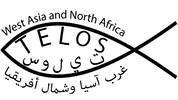
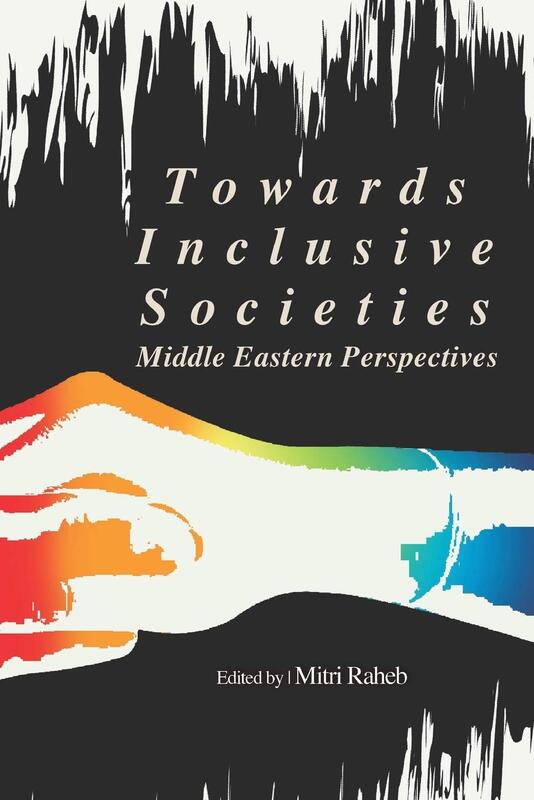
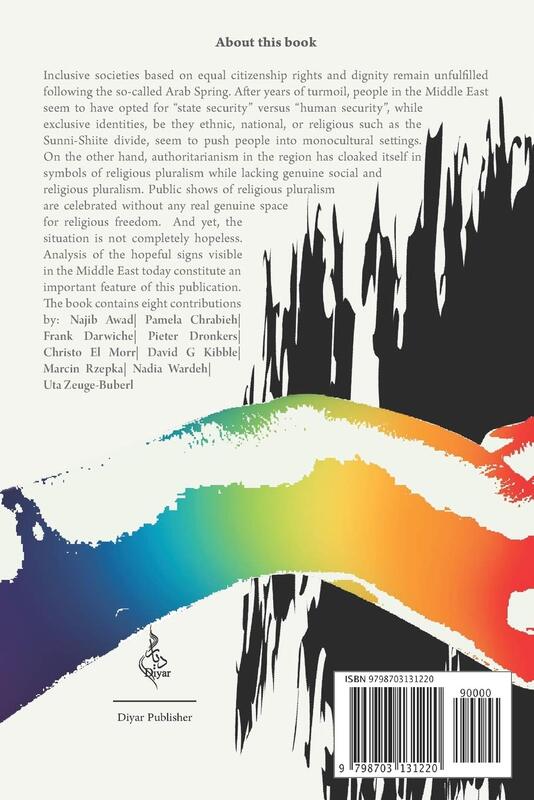
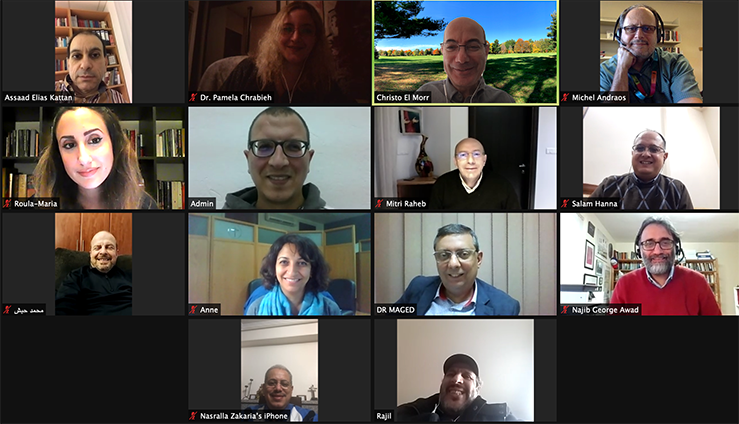
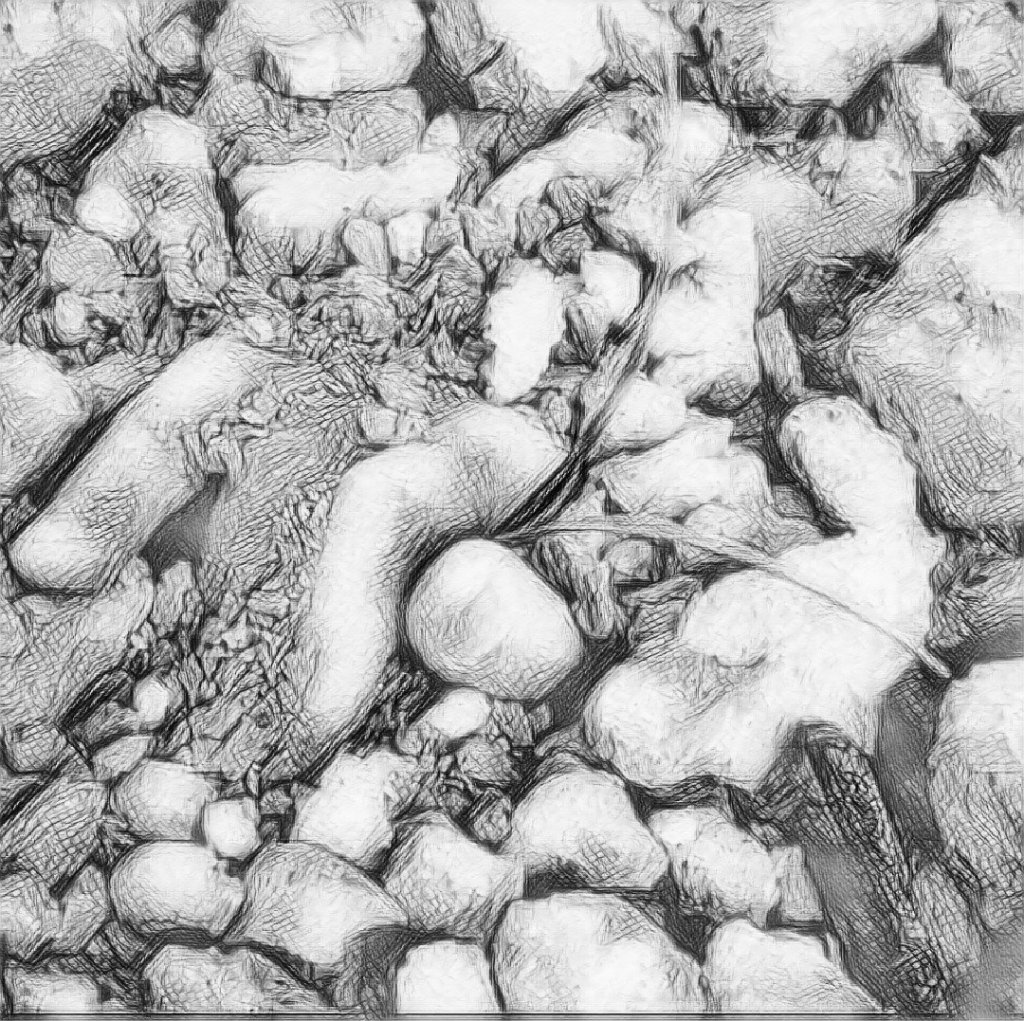
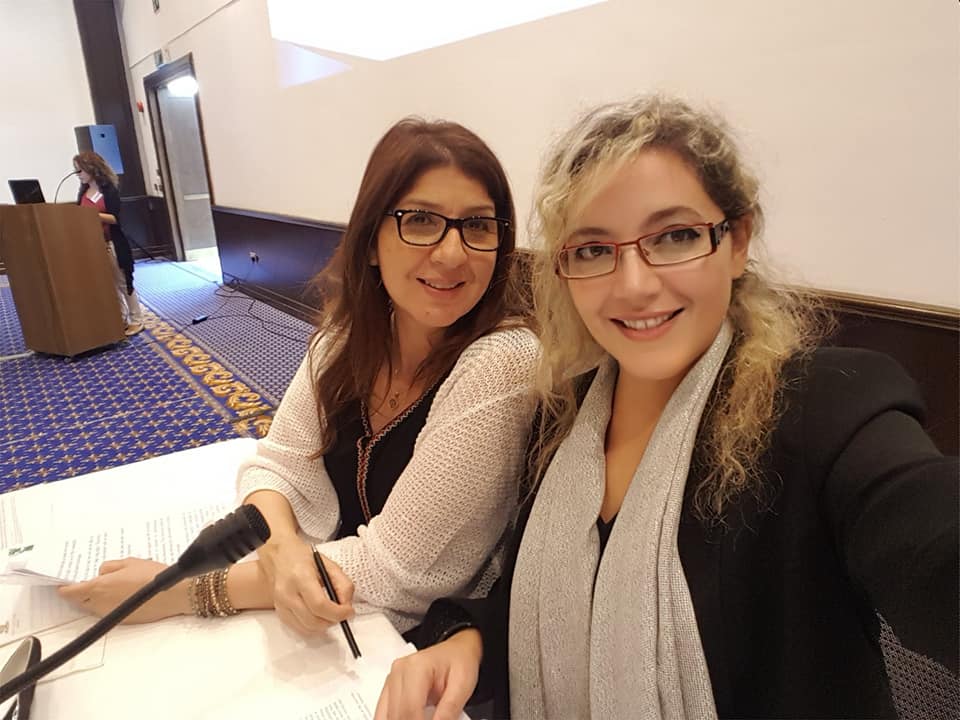
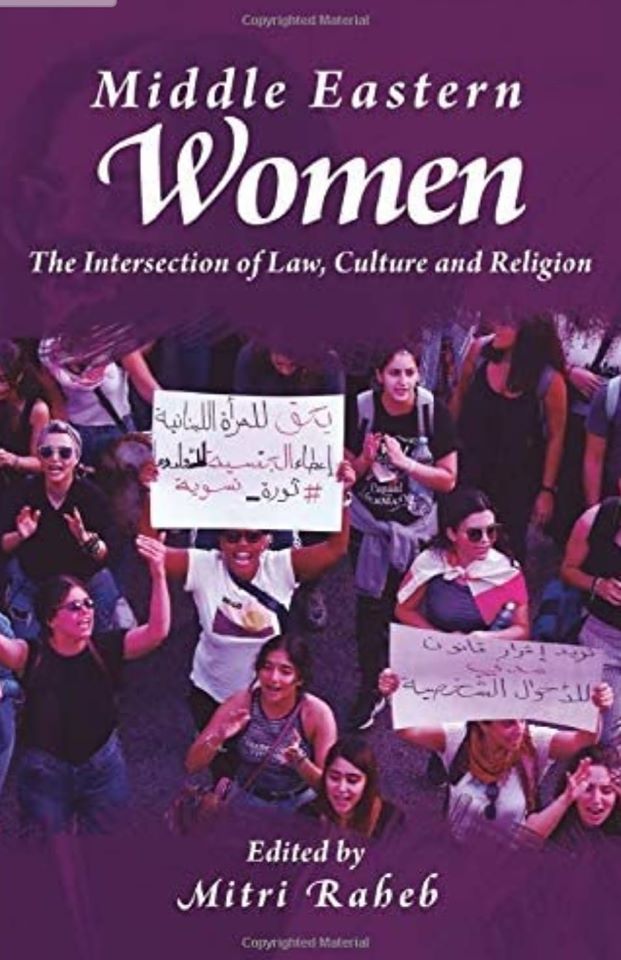
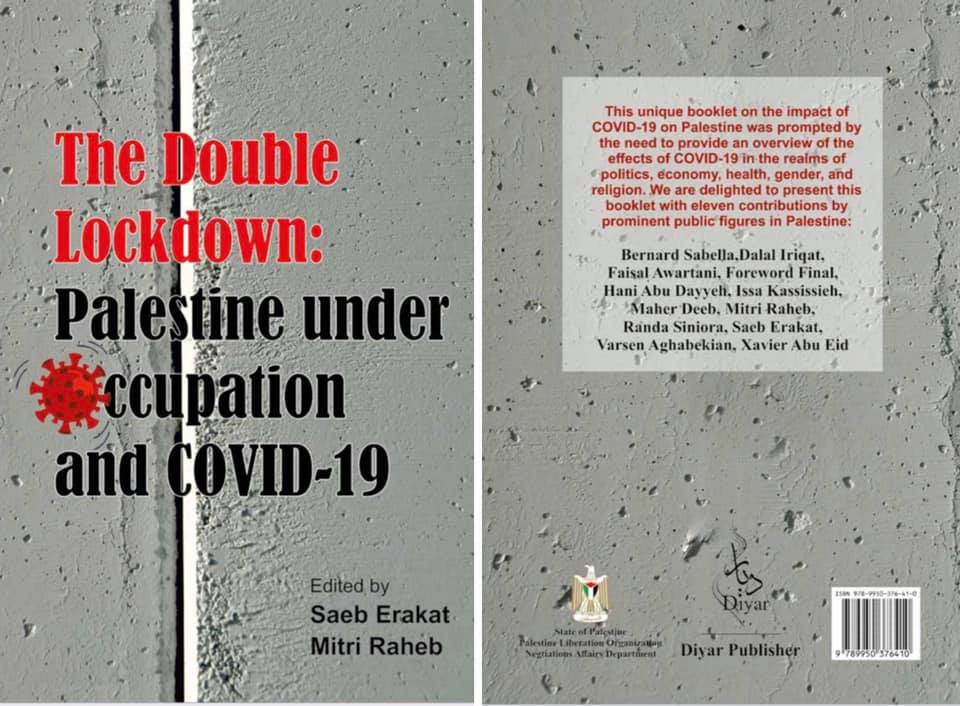
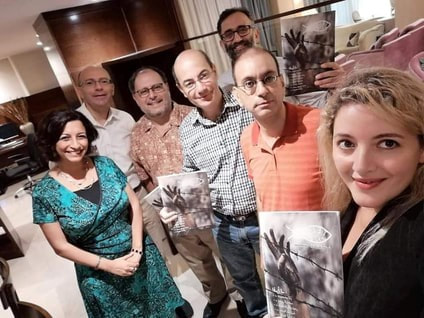
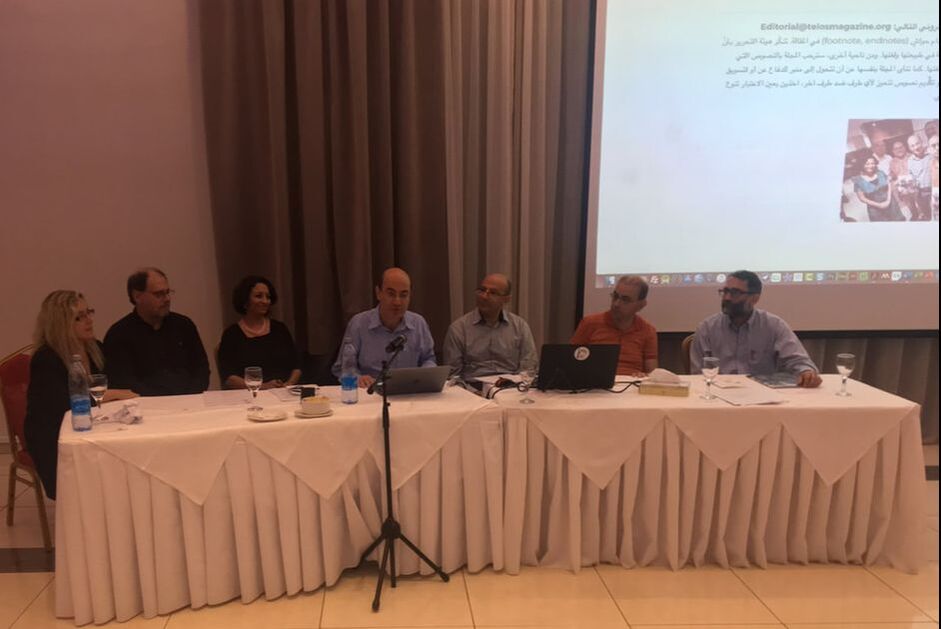
 RSS Feed
RSS Feed
